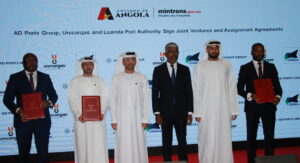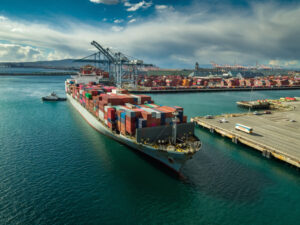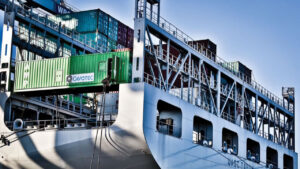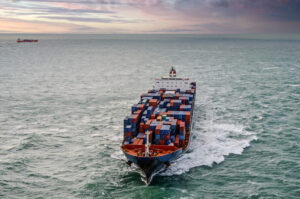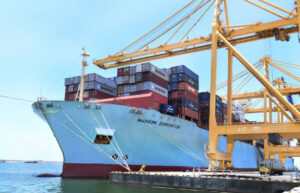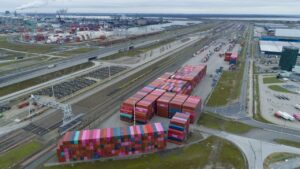Eurogate, the largest container stevedore in Europe, documented a thirty percent drop in profit last year.
The company’s net profit fell from €78 million to €54.6 million year-on-year, while overall revenue stalled at €654 million.
Earnings before interest tax, depreciation and amortization were eleven percent lower at €154.3 million.
Thomas Eckelman, chairman of Eurogate’s management board, addressed the challenges posed by the difficult market environment in a company press release. “Given the uncertainties in the world economy, especially as a result of the European sovereign debt crisis, the outlook for 2013 is restrained.”
The deprecation in profit was in line with company expectations due to start-up costs related to the construction, maintenance and operation of the Eurogate’s deep water Container Terminal in Wilhelmshaven.
Despite the risk of developing infrastructure at a time of recession, Eckelman also explained that the “deepening of the Elbe and Weser navigation channels, the improvements to the Kiel Canal and the construction of the coastal A20 motorway top a list demanding immediate attention.”
At €159 million, Eurogate’s investments doubled last year.
Despite the overall loss, particular terminals within Eurogate defied the trend. Traffic at their terminals in Russia, Germany, Italy, Morocco and Portugal remained unchanged at 13.3 million 20-foot units. Italian terminals in Gioia Tauro and Cagliari, thanks to their major customers MSC Mediterranean Shipping Company and Hapag Lloyd, showed increased traffic by eighteen percent and five percent respectively. The Bermerhaven terminal in Germany, successful in their transhipment and storage of on and off shore wind turbines, also saw their volume grow by three percent.
“Due to its international presence in several locations, the [Eurogate] Group is well positioned for the future,” assured Eckelman.
Ben Oliver Briceno, Staff writer at Port Technology International.

